#U.S. Civil War
Text

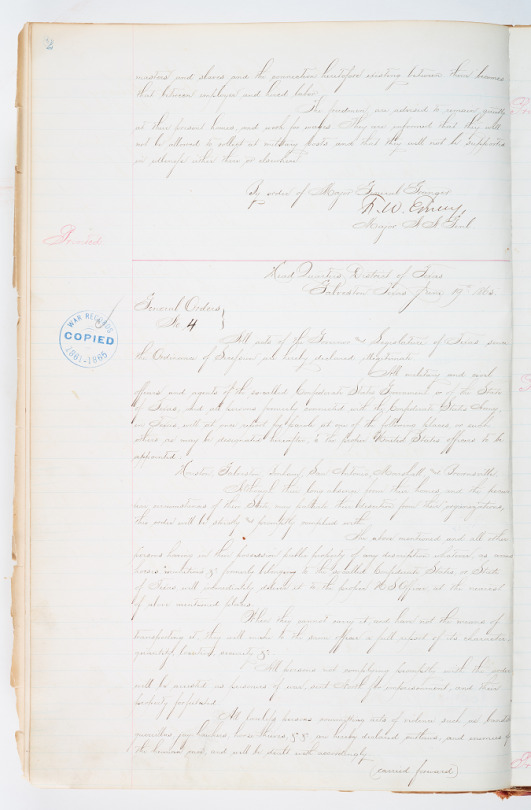
Happy Juneteenth!
General Order No. 3, June 19, 1865.
Record Group 393: Records of U.S. Army Continental Commands
Series: General Orders Issued
File Unit: General Orders Issued
Transcription:
[stenciled or stamped (?) ; page numer; near upper-right corner:] 1
{"OldBook[...]" below seems to have been added] [text below handwritten:]
Old Book 33.13 ac [? (unclear after "a"] Head Quarters District of Texas
[blue [circular] stamp [:; seen in left margin; following text:] ] [above central line:] WAR RECORDS Galveston Texas June 17th 1865.
[central line (larger letters):] COPIED
[below central line:] 1861-1865 [/stamp (transcribed lines from "Galveston[...] to bracketed header transcribed below seen to right of stamp in Image]
General Orders}
No. 1 }
--------- [short separating line extended to right of left margin line]
I Pursuant to orders from the Head Quarters Military Division
of the South West, dated New Orleans, June 13th 1865, the undersigned assumes
command of all troops within the State.
------------- [another short separating line]
II No passes or permits will be recognized on the coast of Texas except
by authority from Head Quarters Military Division of the South West, or from
these Head Quarters.
[signature:} G., Granger [/signature]
Major General Commanding.
-------------------------------------------------------------------------------------------------------------------------------------------------- [long (separating) line from left margin to right edge]
Printed [handwritten in red ink[; seen in left margin] ]
[ [stamp also to left of left-margin line in Image:] [circular] blue stamp[with following text within it:] ] [above & below center; inside perimeter:] WAR RECORDS
1861-1865
[between the 2 lines transcribed just above; in larger letters:] COPIED [/stamp]
[following 4 transcribed lines seen to right of stamp in Image:]
Head Quarters District of Texas
Galveston Texas June 19th 1865
General Orders}
No. 2 }
The Staff of the District is announced as follows:
Major [underlined:] F. W. Emery[/underlined], U. S. Vols. Asst. Adjt. Genl.
Lieut. Col. [underlined:] J. C. Palfrey[/underlined], U.S. Vols. Asst. Insp[']r. [abbreviation for "Inspector"] Genl.
Lieut. Col. [underlined:] R. G. Laughlin[underlined], 94th ["4" faint] Ill's [abbreviation for "Illinois"] Vols. Provost Marshal Genl.
Lieut. Col. [underlined:] J. G. Chandler[/underlined], U. S. Vols. Chief Quartermaster
Captain [underlined:] F.G. Noyes[/underlined], U.S. Vols. Chief Comy. [abbreviation for "Commissary"] of Subsistence
Surgeon [underlined:] C. B. White[/underlined], U.S. Vols. Medical Director
Captain [underlined:[ G. W. Fox [/underlined], 26th N. Y. Battery, Chief of Artillery
Captain [underlined:] S. Howell[/underlined], [?] 6th Mich. Hy. [abbreviation for "Heavy"] Artillery Chief of Ordnance
1st Lieut [underlined:] J. L. Baker[/underlined], 23[']d Wis. Vols. Commissary of Musters
Major [underlined:] W. L. Avery[/underlined], U. S. Vols. Aide-de-camp.
Captain [underlined:] C. S. Sargent[/underlined], U. S. Vols. Aide-de-Camp.
G, Granger [signed]
Major General Commanding. [this line written in same writing as the writing above the signature]
Printed. [handwritten in red ink [in left margin]]
------------------------------------------------------------------------------------------------ [separating line in Image from left margin to right edge]
Head Quarters District of Texas
Galveston Texas June 19th 1865.
[blue stamp of WAR RECORDS COPIED 1861-1865]
General Orders}
No. 3 }
The people of Texas are informed that in accordance with a proclamation
from the Executive of the United States, "all slaves are free". This involves an absolute equality of personal rights and rights of property between former
[continued]
[page 2]
[continued]
masters and slaves and the connection heretofore existing between them becomes
that between employer and hired labor.
The freedmen are advised to remain quietly
at their present homes and work for wages. They are informed that they will
not be allowed to collect at military posts and that they will not be supported
in idleness either there or elsewhere.
By order of Major General Granger
F.W. Emery [signed]
Major A.A. Genl.
Printed [handwritten in red ink]
Head Quarters District of Texas
Galveston Texas June 19th 1865
General Orders
No. 4
[blue stamp of War Records Copied 1861-1865]
All acts of the Governor and Legislature of Texas since
the Ordinance of Succession are hereby declared illegitimate.
All military and civil
officers and agents of the so-called Confederate States Government or of the State
of Texas, and all persons formerly connected with the Confederate States Army,
in Texas, will at once report for parole at one of the following places, or such
other as may be designated hereafter, to the proper United States officers to be
appointed:
Houston, Galveston, Bonham, San Antonio, Marshall and Brownsville.
Although their long absence from their homes, and the
peculiar circumstances of their State, may facilitate their desertion from their organizations,
this order will be strictly and promptly complied with.
The above mentioned, and all other
persons having in their possession public property of any description whatever, as arms
horses, "munitions", etc., formerly belonging to the so called Confederate States, or State
of Texas, will immediately deliver it to the proper U.S. Office, at the nearest
of above mentioned places.
When they cannot carry it, and have not the means of
transporting it, they will make to the same officer a full report of its character,
quantity, location, security, etc.
All persons not complying promptly with the order
will be arrested as prisoners of war, sent North for imprisonment, and their
property forfeited.
All homeless persons committing acts of violence such as bandits,
guerillas, jay-hawkers, horse-thieves, etc., etc., are hereby declared outlaws, and enemies of
the human race, and will be dealt with accordingly.
(carried forward)
56 notes
·
View notes
Text
"LITTLE WOMEN" (1970) Review
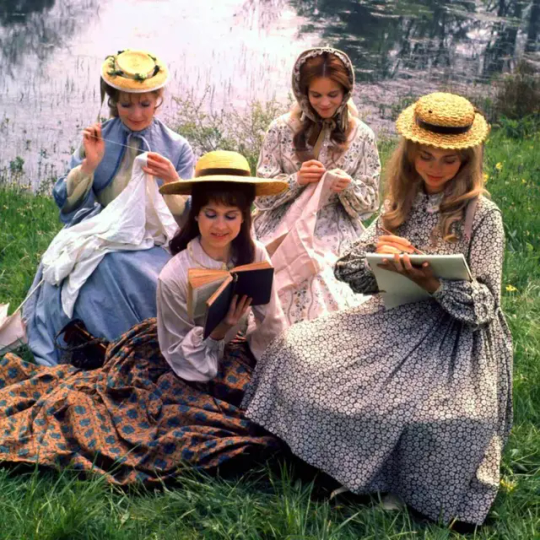
"LITTLE WOMEN" (1970) Review
It is very rare to find a British adaptation of an American novel. It is even rarer to find more than one adaptation. Louisa May Alcott's 1868 novel, "Little Women" must have been very popular with the BBC network. The latter had adapted the novel four times. Several years ago, I had seen the network's 2017 version. I thought it was the only version adapted by the BBC . . . until I had stumbled across the 1970 adaptation.
Set during the 1860s decade, "LITTLE WOMEN" told the story of the four March sisters of Concord, Massachusetts and their coming of age stories during and after the U.S. Civil War. With second daughter Josephine aka Jo serving as the story's main protagonist, the miniseries focused on the sisters' struggles with the family's diminished finances, their personal ambitions and especially their love lives. Early in the story, the March sisters become acquainted with their neighbor, one Theodore "Laurie" Lawrence, grandfather Mr. Lawrence and his tutor, John Brooke. Whereas third sister Beth develops a friendship with the elderly Mr. Lawrence, oldest sister Meg falls in love with Mr. Brooke, and the youngest Amy develops from a slightly vain and coddled child to a mature and self-assured young woman. As for Jo, the story focused on her development from a temperamental and stubborn girl, who learns to maintain her hot temper, navigate through her relationships with two men and adhere to her ambitions to become a writer.
Another surprising aspect of "LITTLE WOMEN" that I had learned was that it was the longest adaptation of Alcott's novel with a total running time of 225 minutes. This gave screenwriters Alistair Bell and Denis Constanduros to be as faithful to Alcott's novel as possible. Were they? Somewhat. The pair did take care to explore Laurie's volatile relationship with his grandfather - something that a good number of the other adaptations had failed to do. And it allowed glimpses into his growing relationship with Amy in Europe. Also, the early stages of Meg's marriage to Mr. Brooke ended up being explored, something that only the 2019 movie adaptation had repeated. I believe the miniseries did a very solid job of conveying these aspects of Alcott's novel.
But the miniseries left out Meg and Laurie's experiences at Annie Moffat's party. The miniseries also left out the sisters meeting with Laurie's English friends - something only the 2017 adaptation had included. Bell and Constanduros had changed the time period of Amy's near drowning at Walden Pond from the winter to either the spring or summer, allowing a rickety pier to send her into the pond, instead of thin ice. And it never touched on Amy's violent encounter with her schoolteacher over pickled limes. Did these aspects of the screenplay harm the production? Hmmmm . . . perhaps not. But I do feel that the miniseries' increased emphasis on the Lawrence men's relationship came dangerously close to overshadowing the March sisters' own relationships. I am relieved that the miniseries managed to focus somewhat on Jo's relationship with Professor Bhaer. However, I do have a problem with the sexist manner in which Constanduros and Bell had the professor viewed his future marriage to Jo. Whatever admiration Professor Bhaer had for Jo's writing skills seemed to fly out of the window in his anticipation of her being a good wife. Superficially, I had no problems with the brief focus on Meg and John's marriage, even if it could have been somewhat more thorough. But I believe it exposed what I believe was one of the miniseries' main problems.
"LITTLE WOMEN" did have its share of problems. Like the 1978 television adaptation, it is clear to see that it suffered somewhat from a low budget. If I must be frank, that seemed to be more obvious in this adaptation. Aside from Amy's near drowning at Walden Pond and some of European settings featuring Amy and Laurie, all other scenes had obviously been shot inside a studio. Very disappointing, considering a good number of BBC productions featured a mixture of interior and exterior shots. I found the actresses' makeup and hair - especially the latter - to be inconsistent and frankly, a big mess. Betty Aldiss' costume designs seemed solid enough, but not particularly earth shattering. Although the cast solely featured British performers, I believe a handful of them managed to handle American accents quite well - especially Stephen Turner, Stephanie Bidmead and Martin Jarvis. But despite their solid or excellent performances, the rest of the cast seemed to struggle maintaining one. And could someone please explain why three of the actresses who portrayed the March sisters seemed to be incredibly loud? Nearly every time one of them spoke, I had to turn down my television's volume. Some have explained these scenes featuring quarreling between the four sisters. They have even gone as far to claim this adaptation was the only one that featured the sisters often quarreling. Well, they would be wrong. Nearly every adaptation (I am not certain about the 1933 movie) of Alcott's novel featured quarrels between the sisters. So, this explanation does not strike me as a good excuse for the loud voices.
Judging from the previous paragraph, one would assume I have a low opinion of the majority of performances featured in "LITTLE WOMEN". Not really. Most of the performances featured in the miniseries struck me as pretty solid. Actresses Angela Down ("Jo"), Jo Rowbottom ("Meg"), Janina Faye (Amy) and Sarah Craze ("Beth") all gave solid performances and managed to capture the nuances of their individual characters in a competent manner. As I had stated earlier, I had a problem with most of them - with the exception of Craze - resorting to loud and histrionic voices in their portrayals of the March sisters at a younger age or in the case of Rowbottom, engaged in a heated quarrel. I thought Jean Anderson gave a solid performance as the stuffy Aunt March. Frederick Jaeger gave a very likeable performance as Jo's love interest, the intellectual Professor Friedrich Bhaer. And I believe the actor had a solid screen chemistry with Down. I really had a problem with actress Pat Nye, who portrayed the family's housekeeper, Hannah. Nye's handling of Hannah's American accent struck me as ridiculously exaggerated . . . to the point that her accent almost seemed Southern. Patrick Troughton, a talented actor in his own right, had more or less been wasted in his role as the family's patriarch, Mr. March. I do not believe he had spoken more than three to five lines in this production.
I can think of at least four performances that really impressed me. It seemed a pity that not one of them came from the four actresses who portrayed the sisters. Oh well. John Welsh has my vote as the second best version of Mr. James Lawrence, the March family's wealthy neighbor. I thought he did an excellent job of developing his character from a strict and curmudgeon guardian to a warm-hearted man who learned to develop a relationship with his grandson. Most portrayals of John Brooke, Meg's future husband, have never impressed me. But I must say that I found Martin Jarvis's portrayal of the character more than impressive. The actor was given an opportunity to delve more into Mr. Brooke's personality and he ended up giving one of the better performances in the miniseries. If given the chance to vote for the best performance in "LITTLE WOMEN", I would give it to Stephen Turner for his portrayal of the sisters' close friend, Theodore "Laurie" Lawrence. I suspect Turner had greatly benefited from Bell and Constanduros's script, which seemed more interested in Laurie as a character than the four leads. But judging from Turner's performance, I suspect his would have overshadowed everyone else's due to the actor's superb handling of the character. I also have to compliment Stephanie Bidmead's portrayal of the March family's matriarch, Mrs. "Marmee" March. Not only did I find her performance warm and elegant, but it also lacked the dripping sentimentality of the earlier versions and the heavy-handed attempts to make the character "modern" - relevant to today's movie and television audiences.
"LITTLE WOMEN" had its flaws. I cannot deny this. But I feel its flaws - which included a limited budget and some questionable American accents - were not enough to dismiss the nine-part miniseries as unworthy. I believe the 1970 miniseries proved to be a lot more solid and entertaining than some fans of Alcott's novel believed, thanks to Paddy Russell's competent direction, a damn good screenplay by Denis Constanduros and Alistair Bell, and a first-rate cast led by Angela Down.
#costume drama#period drama#period dramas#little women#little women 1970#louisa may alcott#little women bbc#jo march#angela down#meg march#jo rowbottom#janina faye#amy march#sarah craze#beth march#stephanie bidmead#stephen turner#martin jarvis#frederick jaeger#patrick troughton#pat nye#u.s. civil war#john welsh#paddy russell#denis constanduros#alistair bell
5 notes
·
View notes
Photo
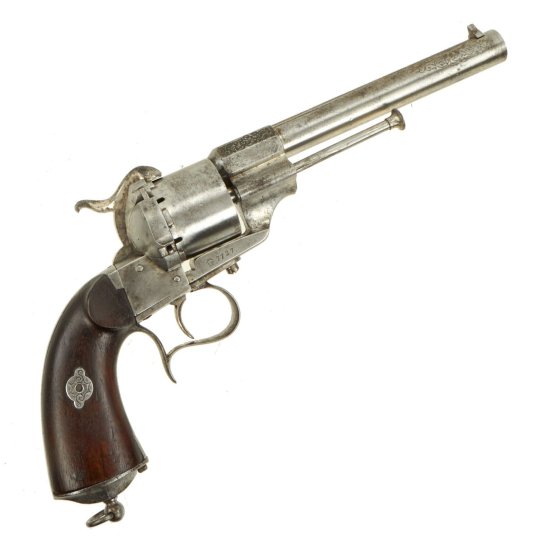
Original U.S. Civil War French M1854 Lefaucheux Cavalry Model 12mm Pinfire Revolver
#U.S. Civil War#Lefaucheux Cavalry#12mm#Pinfire#Revolver#antique#firearms#arms#guns#gun#weapons#USA during the Civil War#1854#19th century
55 notes
·
View notes
Text
"On the Advance to Fisher's Hill: Forward the Skirmishers" (Alfred Waud, 22 September 1864, courtesy of the U.S. Library of Congress, public domain)
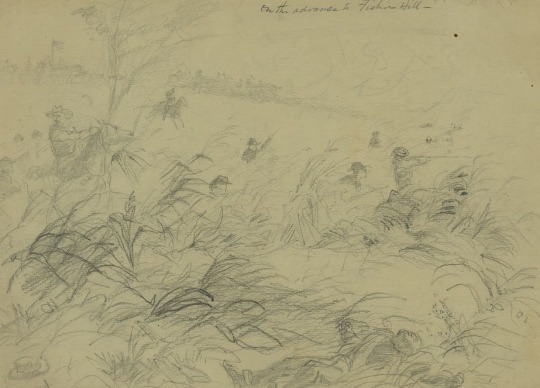
American Civil War artist Alfred Waud's depiction of Union Army troops advancing on Confederate forces during the Battle of Fisher's Hill, Virginia on 22 September 1864.
#1860s art#digital humanities#digital archives#america#american history#american civil war#civil war#ap us history#u.s. civil war#1864#virginia#virginiahistory#us army#infantry#union army
6 notes
·
View notes
Text
civil war fanart guys
Sherman poisoning Lee.

2 notes
·
View notes
Text
TIL that the very last shots of the U.S. Civil War were fired in Alaska (still owned by the Russians) by a Confederate privateer whose crew did not learn about Lee’s surrender until June of 1865 and surrendered to the British Royal Navy (in England) in November.
3 notes
·
View notes
Text
Top Five Favorite Episodes of "COPPER" (2012-2013)

Below is a list of my five favorite episodes from the 2012-2013 BBC America series, "COPPER". Created by Tom Fontana and Will Rokos, the series starred Tom Weston-Jones, Kyle Schmid and Ato Essandoh:
TOP FIVE FAVORITE EPISODES OF "COPPER" (2012-2013)
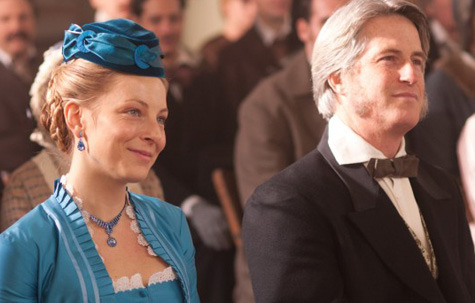
1. (1.02) "Husbands and Fathers" - In this brutal episode, New York City detective Kevin "Corky" Corcoran set about rescuing child prostitute/abused wife Annie Sullivan from a Manhattan brothel and her perverse customer, a wealthy businessman named Winifred Haverford.
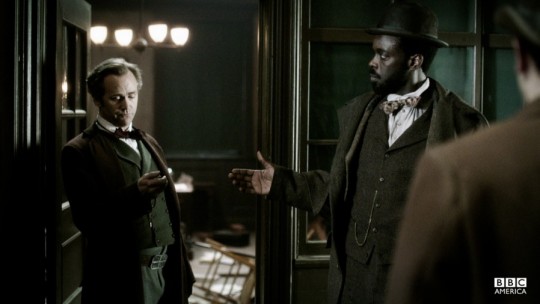
2. (2.05) "A Morning Song" - Major counterfeiter Philomen Keating takes over the Sixth Ward precinct and hold hostages in an effort to retrieve his confiscated counterfeiting plates back.

3. (1.09) "A Day to Give Thanks" - Following the reappearance of his missing wife Ellen in an asylum, Corky tracks down her former lover in order to learn what really happened to their dead daughter, while he was in the Army. Meanwhile, Confederate agents blackmail Robert Morehouse's wealthy father into helping their plot to set New York City on fire, following the re-election of Abraham Lincoln.
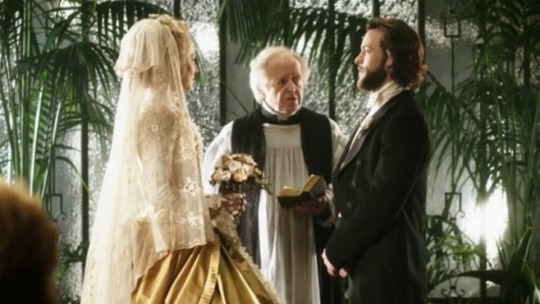
4. (2.03) "The Children of the Battlefield" - While Kevin searches for the person responsible for the kidnapping and murder of young Five Points men, Robert Morehouse and the widowed Elizabeth Haverford exchange wedding vows before the latter reveals an unpleasant surprise.

5. (1.06) "Arsenic and Old Cake" - Corky investigate the death of the dentist of one of his men, who died by arsenic poisoning. Widow Elizabeth Haverford tries to discipline an unruly Annie and return the latter to her abusive husband, a Mr. Reilly. An exhibition boxing match between a young African-American and an Irish-American local politician end with racial tension.
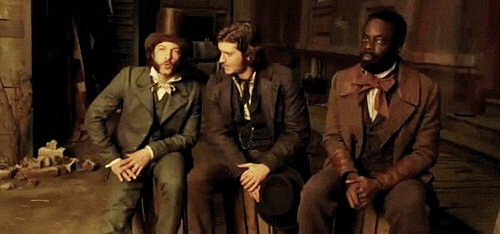
#copper#copper bbc america#tom fontana#will rokos#u.s. civil war#old new york#tom weston jones#ato essandoh#kyle schmid#anatasia griffith#franka potente#kiara glasco#kevin ryan#dylan taylor#tessa thompson#ron white#aaron poole#alex paton-beesley#donal logue#alfre woodard#babs olusanmokun#geordie johnson#lindy booth#peter bryant#brad austin#tanya fischer#rick roberts#andrew howard#lee tergesen#period drama
0 notes
Quote
Yielding instinctively, one after another, to feelings not inspired from any one source exclusively, and unmindful, without purposing to be, of consistency, I seem, in most of these verses, to have but placed a harp in a window, and noted the contrasted airs which wayward winds have played upon the strings.
Herman Melville. "From Battle-Pieces and Aspects of the War." Herman Melville - Selected Poems.
0 notes
Note
Guessing not the only one, but I just toke it for granted that Ulysses S. Grant was a hard drinker. Now learning it was often exaggerated by his rivals and the press during his lifetime, but especially grew in the rise of "Lost Cause" movement?
It certainly was exaggerated, but Grant was a (mostly functional) alcoholic who had a tendency to hit the bottle hard when he was depressed (something he suffered from pretty badly, and arguably his alcoholism was a form of self-medication) or bored or frustrated or isolated. However, he was capable of going cold turkey for long periods of time when he had a good support system around him (most notably his wife, and his aide-de-camp Rawlins, whose presence could keep him clean). Despite what was alleged in the press, Grant never drank during combat - indeed, it tended to be during periods of inactivity that his alcoholism manifested, likely due to that exacerbating his depression.
88 notes
·
View notes
Text
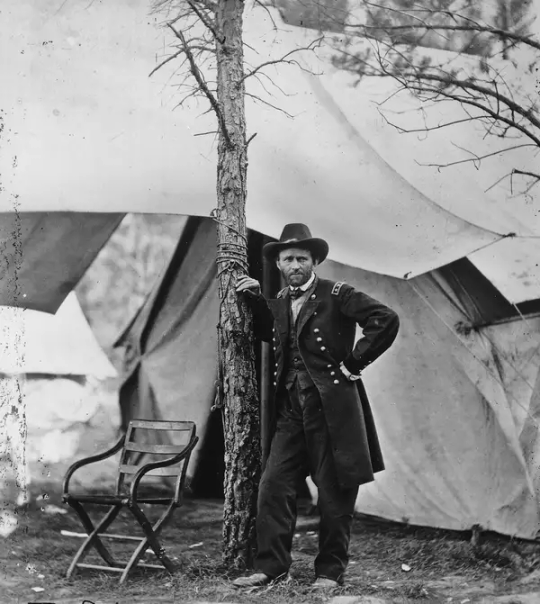
After that terrible Sunday at Shiloh, I started out to find [General] Grant and see how we were to get across the river. It was pouring rain and pitch dark, there was considerable confusion, and the only thing just then possible as it seemed to me, was to put the river between us and the enemy and recuperate. Full of only this idea, I ploughed around in the mud until at last I found him standing backed up against a wet tree, his hat well slouched down and coat pulled up around his ears, an old tin lantern in his hand, the rain pelting on us both, and the inevitable cigar glowing between his teeth, having retired, evidently, for the night. Some wise and sudden instinct impelled me to a more cautious and less impulsive proposition than at first intended, and I opened up with, "Well Grant, we've had the devil's own day, haven't we?"
"Yes," he said, with a short, sharp puff of the cigar; "lick 'em tomorrow, though."
-- General William Tecumseh Sherman, on General Ulysses S. Grant after the first day of the Civil War's Battle of Shiloh in 1862, as told to the Washington Post (published May 17, 1891).
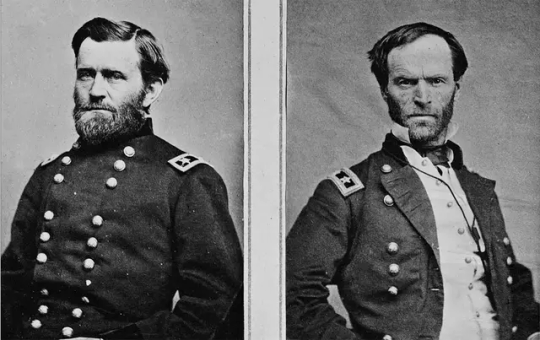
#History#Civil War#Ulysses S. Grant#William Tecumseh Sherman#General Grant#General Sherman#Battle of Shiloh#Civil War Generals#Union Generals#President Grant#William T. Sherman#U.S. Grant#Civil War History#Civil War Battles#Military History#Military Leaders#BAMF#Especially Grant
27 notes
·
View notes
Text

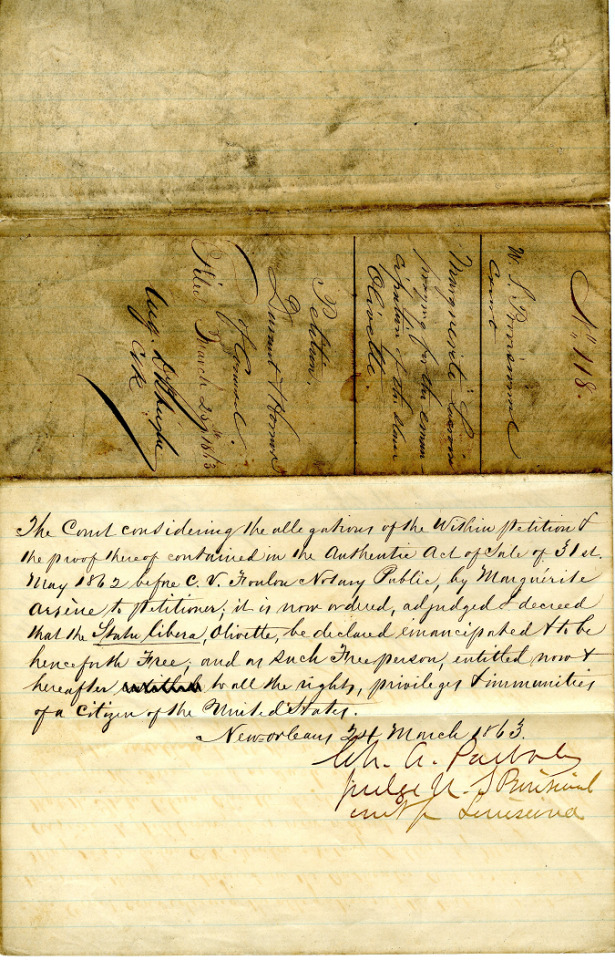
Marguerite Lacroix freed her mother Olivette from slavery on March 25, 1863.
Marguerite had purchased Olivette with the intention of freeing her.
Record Group 21: Records of District Courts of the United States
Series: Case Files
Transcription:
To the Honorable Charles A Peabody Judge of the United States Provisional Court for the State of Louisiana
The petition of Marguerite LaCroix, who resides in New Orleans, respectfully represents that she is the owner of a female slave named Olivette a mulatress aged about forty two years, whom petitioner purchased on the thirty first day of May 1862, by a public act before C. V. Foulon, A Notary public of the city of New Orleans.
Now Your petitioner further shows that the said slave Olivette is her mother, and was purchased by her with the sole design of conferring freedom upon her which petitioner now desires to do.
Wherefore petitioner prays, the premise being considered, that a decree may be passed by the Honorable Court, declaring the above named slave Olivette to be a free person, and so such entitled to all the rights, privileges and immunities conferred on free persons by the laws of the United States: and she prays for all general relief.
Marguerite Lacroix
Durant T Hornor of Counsel
[page 2]
No 118.
W. L. Provisional Court
Marguerite Lacroix praying for the emancipation of the slave Olivette
Petition
Durant T. Hornor of Counsel
Filed March 25th 1863
Aug. D. [illegible] Clk
The Court considering the allegations of the within petition & the proof thereof contained in the Authentic Act of Sale of 31st May 1862 before C . V. Foulon Notary Public, by Marguerite arsine to petitioner; it is now ordered, adjudged, & decreed that the Slave libera, Olivette, be declared emancipated & to be henceforth Free; and as such Free person, entitled now & hereafter to all the rights, privileges & immunities of a Citizen of the United States.
New Orleans 24 March 1863.
Ch. A. Peabody
Judge U. S. Provincial
Court of Louisiana
#archivesgov#March 25#1863#1800s#Civil War#U.S. Civil War#slavery#Black history#African American history#New Orleans#NOLA
111 notes
·
View notes
Text
TIME MACHINE: Mary S. Peake
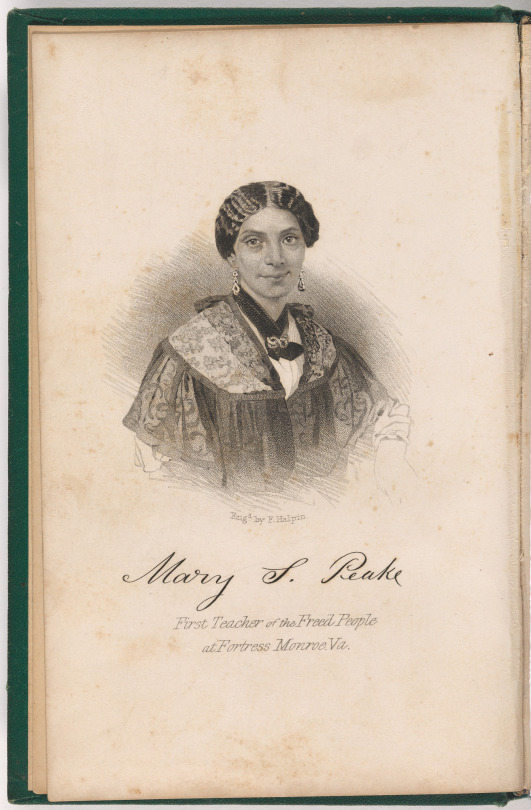
TIME MACHINE: MARY S. PEAKE
One of the least known historical figures from the 19th century an American educator and humanitarian named Mary S. Peake. Along with her husband, Mrs. Peake was a member of the African American elite community from Hampton, Virginia before the U.S. Civil War.
In 1823 Norfolk, Virginia; Mary Peake was born as Mary Smith Kelsey to a light-skinned free woman of color and an Englishman. Her mother sent Mary to live with her aunt in Alexandria (then part of the District of Columbia), so that she could attend school. Mary spent another eight years attending a primary school operated by Sylvia Morris. Since Alexandria was part of the District of Columbia until 1846, when it was retro-ceded to Virgina. A new U.S. Congress law prohibited free people of color in Virginia and several other Southern states from being educated. This prohibition came as a result from the Nat Turner Rebellion in 1831. When Alexandria was retro-ceded back to Virginia in 1846, all schools for free people of color were closed due to this law. However, Mary had completed her education at age sixteen by 1839 and returned to her family in Norfolk.
Not long after her return to Norfolk, Mary secretly taught some of the city's slaves and free blacks to read and write in defiance of the law that prohibited African Americans from receiving an education. Her widowed mother married a free man of color named Thompson Walker in 1847 and the family moved to Hampton, Virginia, where they purchased a house. In 1850-51, Mary married Thomas Peake, a freed slave who worked in the merchant marine. The couple had a daughter named Hattie, whom they nicknamed "Daisy". As she had done in Norfolk, Mary began teaching some of the neighborhood's slaves and free blacks in defiance of the law prohibiting their education. Kelsey also founded a women's charitable organization, called the Daughters of Zion, whose mission was to assist the poor, the sick and enslaved fugitives who managed to reach Hampton. She supported herself and her family as a dressmaker and continued to teach in secret. Among her adult students was her stepfather Thompson Walker, who became a leader of Hampton's black community.
A few weeks following the outbreak of the U.S. Civil War, Union forces assumed control of the nearby Fort Monroe. The fortification became a place of refuge for enslaved fugitives seeking asylum. The Union defined them as "contraband", a legal status to prevent their being returned to Confederate slaveholders. They built the Grand Contraband Camp near, but outside the protection of Fort Monroe. Her classes moved inside Fort Monroe, after Confederate forces torched Hampton in August 1861. After Mary Peake began teaching the fugitives' children, the American Missionary Association (AMA) hired her as its first paid black teacher. Mary taught her first class and many others under a large oak tree on September 17, 1861; in Phoebus, a small town nearby in Elizabeth City County.
Eventually, the AMA provided Peake with Brown Cottage, which is considered the first facility of Hampton Institute (and later Hampton University). Mary's school taught more than fifty children during the day and twenty adults at night. Due to her classes being held at Brown Cottage, Mary became associated with the AMA’s later founding of Hampton University in 1868. However, Mary never enjoyed this distinction during her lifetime. Before the war, she had contracted tuberculosis. The illness struck her again in February 1862. And on February 22, 1862 - George Washington's birthday - Mary Peake died of tuberculosis.
For more details on Mary S. Peake, I recommend the following book:
"Mary S. Peake, The Colored Teacher at Fortress Monroe" by Rev. Lewis C. Lockwood
#u.s. history#u.s. slavery#american history#mary s. peake#antebellum#u.s. civil war#hampton#hampton va#fortress monroe#fort monroe#hampton university#american missionary association#black history
3 notes
·
View notes
Text
A pretty chilling read outlining why in the course of less than a decade the U.S. has become "a textbook example of a country headed to civil war."
186 notes
·
View notes
Text
Musician William H. Sieger, Regimental Band, 47th Pennsylvania Volunteer Infantry, c. 1863 (used with the permission of David Sloan)
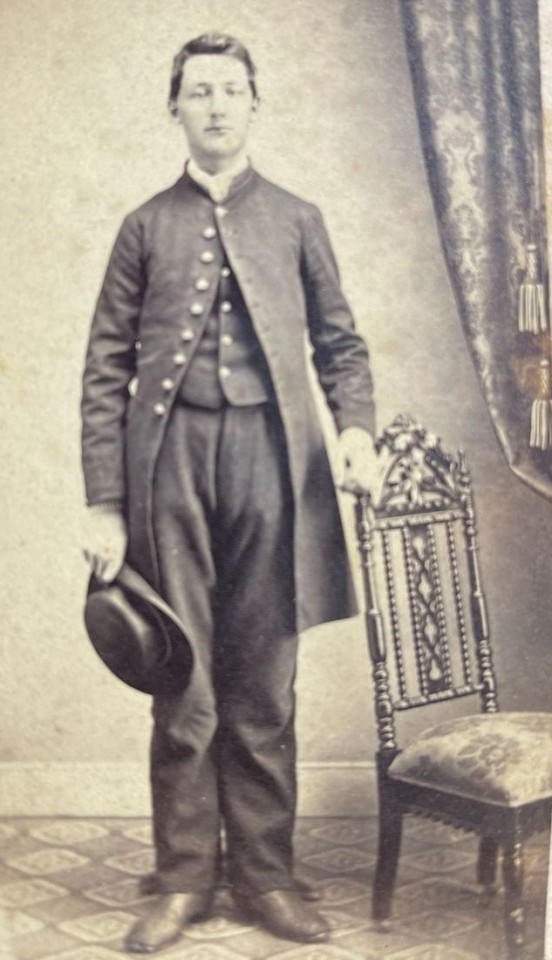
Frank, James, and William Sieger were among the many blood brothers who also became brothers-in-arms when they enlisted for military service with the 47th Pennsylvania Volunteer Infantry during the American Civil War.
All three would ultimately survive the war—but they would each serve in different companies of the regiment—and their individual life journeys would diverge dramatically, post-war, within a few short years of their having returned home to the Great Keystone State. Learn more about their lives in their biography here.
#u.s. civil war#pennsylvania#america#americanhistory#american civil war#pennsylvania history#music#missouri#missouri history#civil war
7 notes
·
View notes
Note
I saw a post about racist Jasper stans bitching bc they’re not able to enjoy shitty J*sper content bc of tags or whatever lol and someone said: “What is there even to enjoy?”. I had to laugh and I thought if you bc it’s so true. Most Jasper content isn’t even that enjoyable. It’s mostly the same boring white-supremacist garbage that I’ve seen before; even the jalice stuff is played out.
The only J*sper content I enjoy is content where he is worshipping Maria, thinking about Maria, talking about Maria, loving Maria, doing anything for Maria tbh. Is that bad? XD I owe it to you and your writing! idk something about a 19/20 year old dumbass confederate falling madly in love with a native brown woman and literally seeing her as a god-like figure as she’s basically handing him his karma for his racist crimes sends me. Ppl act like he was this awesome person before Maria and that it’s her fault he’s gutter trash now with the C*llens but he was gutter trash BEFORE he met Maria. She honestly made him so much better, stronger and MUCH more interesting. She literally created the man these stans thirst over so much. She is the blueprint.
the thing anti-María Jalice stans don't get is, without María, you do not have Jasper. for everything Jasper is, María is the catalyst ❤️
canonically, all we know about Jasper Hale pre-change is 1) he was born in Texas, 2) faked his age to join the Confederate Army* where he became the youngest major in Texas, & 3) was persuasive
beyond that, María made Jasper into the man the fandom adores. you like that he's an empath? guess whose venom made him one. you like that he's a warmonger? guess whose war he fought for. you like that he has a troubled past? guess who put the trouble in it. you like that he's "soft" "empath" "baby" (tbh i don't see it but ok)? guess who made him want to be that way. you like that he's submissive to Alice? guess who broke him in first.
you want Jasper with Alice but wish the María era didn't exist? lol just say you want the hot faceless Confederate to get with the psychic Mississippian & go
as for me, MARÍA ALL DAY BAYBEEEEE
here we have a woman who has suffered all her life at the hands of colonizers. born "1800s or earlier," we can suppose she has firsthand experience with colonization (at least Napoleon's invasion) & lived through Mexico's War of Independence. i.e., she has a deep familiarity with what it means to have your way of life ripped from you by invaders. PLUS she was a victim of Benito's army in the Southern Vampire Wars; her entire coven including her mate was killed.
& despite her losses, she rallied to take back her land & drive out her oppressors. baseline, she is a strong, cunning, powerful indigenous woman with a deep love for her community and her people. HOT
now let's look at Jasper, a bright leader in the Civil War who suffered defeat at the hands of the Union army. yes, María changed him. but did she force him to stay? to go to war? the newborn vamp with the strength & speed to overcome a "grown" vamp chose not to do so. the empath with the power to make anyone disregard him chose not to use it. some say María was "abusive" & "manipulative," but few acknowledge that Jasper had a choice.
why didn't Jasper leave? because he's submissive to anyone more powerful than him. because he was a loser. because the Southern Vampire Wars gave him a second chance at victory. because "empath" or no, he wanted to play war & win.
that's what's compelling about Jasper/María. as wrong as Jasper was for fighting for the Confederacy, he believed he was fighting for the same thing as she. he saw his way of life destroyed by "invaders" & fought back. it's a sick & twisted parallel between oppressor & oppressed that becomes subverted as their relationship goes on... & one that can heal them both.
María's experience with colonizers gives her a visceral picture of what it means to be oppressed... but her relationship with Jasper gives her the victory & emotional reflection she needs to move on. Jasper's military training gives him the hunger & knowledge for war... but his "curse" of empathy provides him with the tools he needs to recognize & address the horrors of his problematic past & move on.
tbh, i find Jasper & María are perfectly suited for a delicious character-driven narrative. Maria's story is that of a traumatized indigenous woman on a path from colonization to decolonization, & the sacrifices & destruction she endures realize that vision. Jasper's story is that of a troubled man on the path from self-hate to self-love, & what it means to undo the societal teachings/traumas & forge a life of empathy & forgiveness.
& that is something Alice alone can never give Jasper.
tl;dr all hail Queen María
#*non-americans: the Civil War (1861-1865) was a battle between Northern (Union) & Southern (Confederate) states...#...over whether to permit slavery in new U.S. territories.#maría my beloved#anon i'm glad you like my María writings (when i used to post them)!#anon thank you so much for giving me this ask and allowing me to just rave about María you are so wonderful <3333 thank you come again#twilight#twilight renaissance#the twilight saga#jasper hale#jasria#jasría#asks#(disclaimer: i don't hate jasper. i do not think of him. no hate to jalice stans either. lichrally i do not care. i simply love maría)#god i love her so much#most underrated character of the whole saga tbh#honestly if i didn't have this rewrite going on i would DEFINITELY LOVE to take a crack at writing The Jasría Story#i just see this gorgeous gothic horrific bloody strangely uplifting & bittersweet vampire novel#it's got death and sex and horror and blood and everything Twilight should've been but Worse (and Better)#ok fuck it fuck it FUCK IT I'M DOING IT. I'M OPENING A DOC. I'M TAKING NOTES. I'VE GOT TO WRITE THIS. SHE DESERVES IT#the-most-pathetic-edge wya bestie#let's change the renaissance. For Her#su-angelvicioso#i hope you see this & i hope you're doing well & if i write this series it's for you & i will get this story to you somehow
30 notes
·
View notes
Text
Getting Rid of the Sokovia Accords
In the DisneyPlus streaming series, “SHE-HULK: ATTORNEY AT LAW”, the MCU finally got rid of the problematic Sokovia Accords when attorney Matt Murdock aka Daredevil revealed the Accords had finally been repealed. Considering my six-year criticism of how the MCU had introduced this legislation in “CAPTAIN AMERICA: CIVIL WAR” (one of my least favorite MCU films), utilized it in productions like “AGENTS OF S.H.I.E.L.D.”, “ANT-MAN & THE WASP”, “THE AVENGERS: INFINITY WAR”, “WANDAVISION” and “THE FALCON AND THE WINTER SOLDIER”; I was very happy to learn this about the Accords’ fate.
However . . . I find myself questioning Disney and Marvel Films’ latest decision regarding the Sokovia Accords. I have problems with its repeal or eradication. I have a problem with how Disney/Marvel Films got rid of it - via a throwaway line. For years, MCU showrunner Kevin Feige tried to tell us that there were two sides to the Sokovia Accords. I had called bullshit to that idea due to my belief that the Accords violated the U.S. Constitutional and the constitutional rights of enhanced people overall and not just the Avengers.
I had hoped that the MCU would get rid of the Accords by exploring the issue of how the Accords violated the rights of many. But the franchise never did this. Instead, the MCU rid itself of the Accords with a quick line - one that would enable the franchise to avoid discussing how WRONG the Accords were in the first place. All I can say is . . . Feige and the Disney suits are a bunch of cowards.
#sokovia accords#mcu#marvel cinematic universe#disneyplus#captain america: civil war#agents of shield#agents of s.h.i.e.l.d.#aos#ant-man and the wasp#wandavision#the falcon and the winter soldier#she-hulk: attorney at law#matt murdock#daredevil#charlie cox#anti kevin feige#anti marvel films#anti disney#anti disney studios#u.s. constitution#the avengers infinity war
129 notes
·
View notes